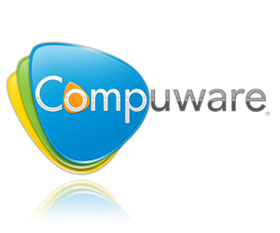Regulator should act against Telkom bundling
 The Independent Communications Authority of SA (ICASA) has failed to react strongly to Telkom’s insistence on bundling its ADSL data service with a compulsory voice service, says an analyst.
The Independent Communications Authority of SA (ICASA) has failed to react strongly to Telkom’s insistence on bundling its ADSL data service with a compulsory voice service, says an analyst.
According to World Wide Worx MD, Arthur Goldstuck, the problem is not new and should have been previously dealt with.
This follows claims by the Internet Service Providers Association (ISPA) claims that Telkom’s insistence on unbundling its ADSL data service with a compulsory voice service contravenes the Consumer Protection Act (CPA.
Calling the operators decision “unlawful”, ISPA GM, Ant Brooks says section 13(1) of the CPA has clear prescriptions against bundling goods and services.
Goldstuck, says this practice is flawed and has been happening for a long time.
“It’s long been one of the structural flaws in telecommunications in South Africa that ADSL has required a voice subscription to Telkom services. The CPA has finally given the consumer a tool with which to challenge this bundling,” he explains.
According to the Act bundling cannot be carried out in a manner that forces consumers to enter into agreements or transactions they do not require, as a condition of buying a certain product or service.
ISPA says Telkom’s ADSL lines are not available in ‘naked’ DSL options, though one can buy a voice service without DSL. The association says it believes that forcing a client to take a voice product and pay a rental fee for a voice line when he or she simply wants a data line is a form of product bundling that is contrary to the CPA.
“The Act sees such practices as a limitation on the consumer’s right to choose suppliers for each service. According to the Act, compulsory bundling of services is forbidden unless the supplier can prove that it offers economic benefits and convenience to the consumer that outweigh the drawbacks of limiting choice,” Brooks explains.
Goldstuck adds that organisations like ISPA would be best suited to fight the practice.
“It’s something ICASA should have addressed a long time ago but, as with so many other structural aspects of telecommunications, it is a battle that may be best fought by a consumer-oriented body. “It is not the first, and will by no means be the last that such CPA-linked challenges to telecommunications industry practises that add unacceptable costs to consumers will be heard of,” Goldstuck explains.
Brooks adds that Telkom is constraining consumer choice with this practice.
“Telkom would be hard pressed to prove that the bundling of a voice service and ADSL line offers economic benefits or convenience to the subscriber, since many subscribers either want the option of using an alternative voice service provider or do not want a voice service at all. Many users regard the voice line rental fee as a ‘Telkom tax’. In many cases, the voice service is not wanted yet consumers are forced to pay for it if they want an ADSL line,” Brooks notes.



